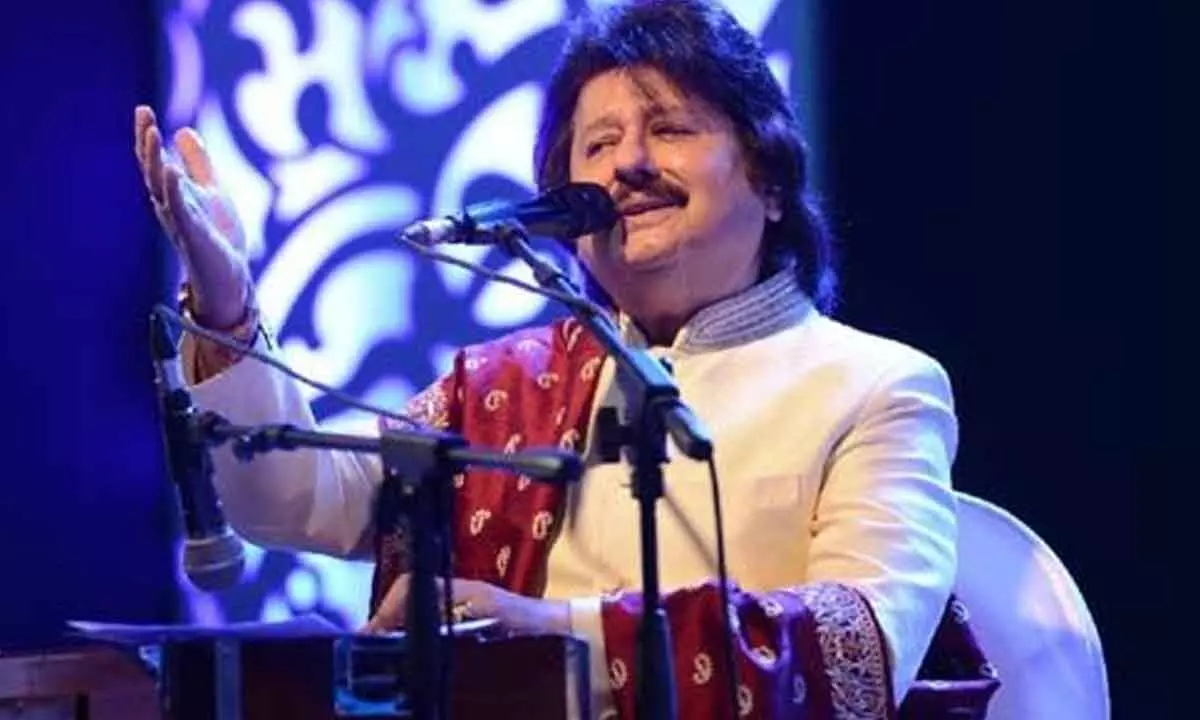Pankaj Udhas (1951-2024): A soothing voice falls silent

Hyderabad: In the 1980s, the decade which is considered a transitory phase in Hindi film music, the influx of ghazal singers into mainstream playback singing caught up as a trend. Along with celebrity crooners, like Ghulam Ali of ‘Chupke Chupke’ fame and Jagjit Singh, (who registered his presence in the core Hindi cinema market with his ‘Honthon Se Chhoo Lo Tum’), Pankaj Udhas (72) who died on Monday due to pancreatic cancer, broke into the big league too, a few years later.
Quite notable was the way he made a beginning. In 1970, Shankar-Jaikishan made him song a comedy number ‘Munne Ki Amma Ye To Bata’ along with the then numero uno of Hindi playback singing, Kishore Kumar. Then followed another film in 1972 – ‘Kaamana’- with Usha Khanna as the composer. The film flopped and Udhas’s song too didn’t receive the traction it deserved.
Fourteen years later, his solo number in Mahesh Bhatt’s ‘Naam’ (1986) - ‘Chitthi Aayi Hai’- was a heart-wrenching rendition highlighting the angst and aches of Indians abroad. It is a song which over the past four decades achieved a chartbuster, top-of-the-table status and remains so. Later, he was also seen onscreen as an actor belting out his ghazals, which were well received.
This was in the 1990s, when melody had made a comeback of sorts into Hindi cinema. New composers were looking for different voices and presenters for their works. Pankaj Udhas managed a niche for himself comfortably in films like ‘ Ghayal’, ‘Saajan’, ‘Yeh Dillagi’, which were full of young faces like Meenakshi Seshadri, Madhuri Dixit, Salman Khan and Saif Ali Khan, who were making their mark in Bollywood then.
The youngest of three brothers, Pankaj Udhas, had his two brothers – Manhar and Nirmal - also into playback singing in Mumbai. His ascent on the ladder of popularity was steady. His songs, a heady mix of love, alcohol and the aftereffects of intoxication, made them a regular in many public programmes, functions and repeatedly heard over and over. His popularity was such that by the end of the decade in the new millennium, he had more than 50 albums and hundreds of compilations.
Replaced by the newer crop of music company-backed singers rapidly towards the new millennium, he is a ‘mood matcher’ kind of a singer, who is heard by film and ghazal lovers of varying ages and genders even today. More than anything else, he represented a unique slot which stayed the course for a good two decades before EDM took over Hindi film music in the new century.














